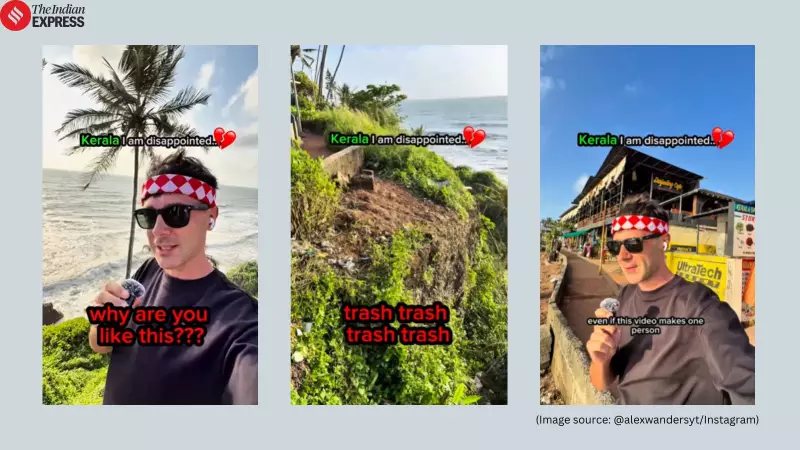
A British travel vlogger's emotional reaction to seeing Kerala's picturesque Varkala Cliffs marred by plastic waste and litter has gone viral, igniting an important conversation about waste management at India's popular tourist destinations.
'I Am Disappointed': Vlogger's Heartfelt Plea
The video creator, known for his travel content, shared a heartfelt clip expressing his dismay at finding the stunning cliff viewpoint in Varkala littered with plastic bottles, food wrappers, and other trash. His genuine disappointment resonated with thousands of viewers who have witnessed similar scenes across India's tourist hotspots.
Varkala's Beauty Versus Environmental Reality
Varkala Cliffs, renowned for their breathtaking views of the Arabian Sea and unique geological formations, have long been a magnet for domestic and international tourists. However, the recent video highlights the growing environmental challenge facing this Kerala paradise.
The vlogger specifically pointed out:
- Plastic bottles and food packaging scattered across viewing areas
- Lack of sufficient waste disposal facilities
- Need for greater awareness among visitors
- Urgent requirement for improved cleaning mechanisms
Social Media Echoes Concern
The video has sparked widespread discussion on social media platforms, with many users sharing their own experiences and supporting the vlogger's call for action. Kerala residents and frequent visitors to Varkala have joined the conversation, suggesting practical solutions for preserving the area's natural beauty.
Path Forward: Sustainable Tourism in Kerala
This incident has brought renewed attention to the importance of sustainable tourism practices. Local authorities and tourism stakeholders now face increasing pressure to implement:
- Enhanced waste collection infrastructure
- Regular cleaning schedules
- Visitor education programs
- Stricter enforcement against littering
- Community involvement in maintenance
The viral video serves as a crucial reminder that India's natural treasures require collective responsibility from tourists, local communities, and authorities alike to remain pristine for future generations.





